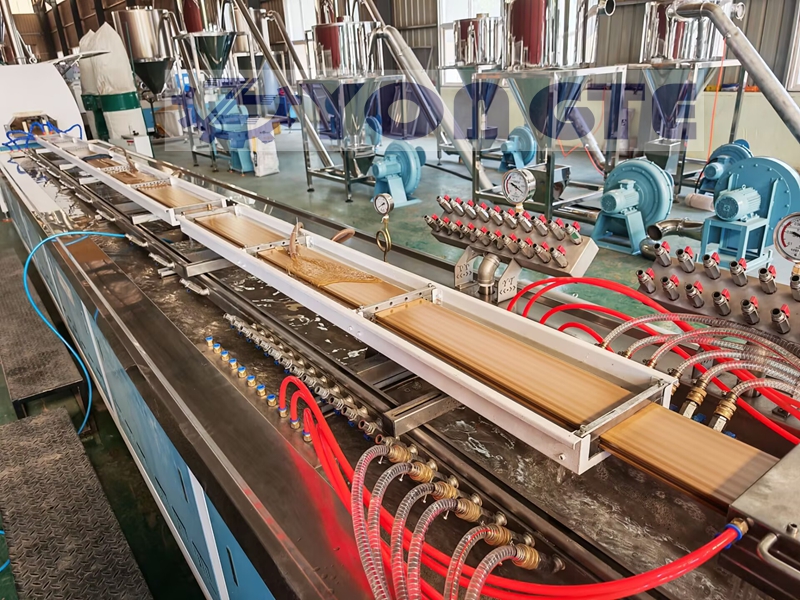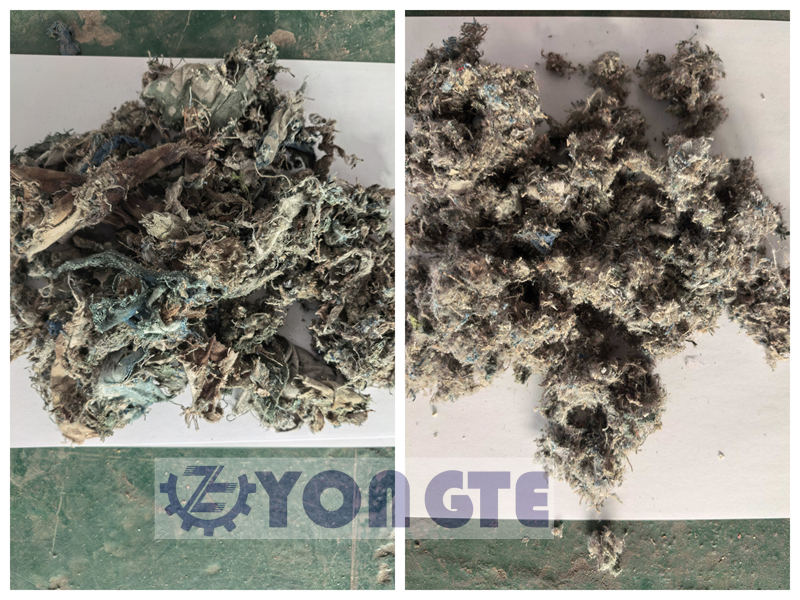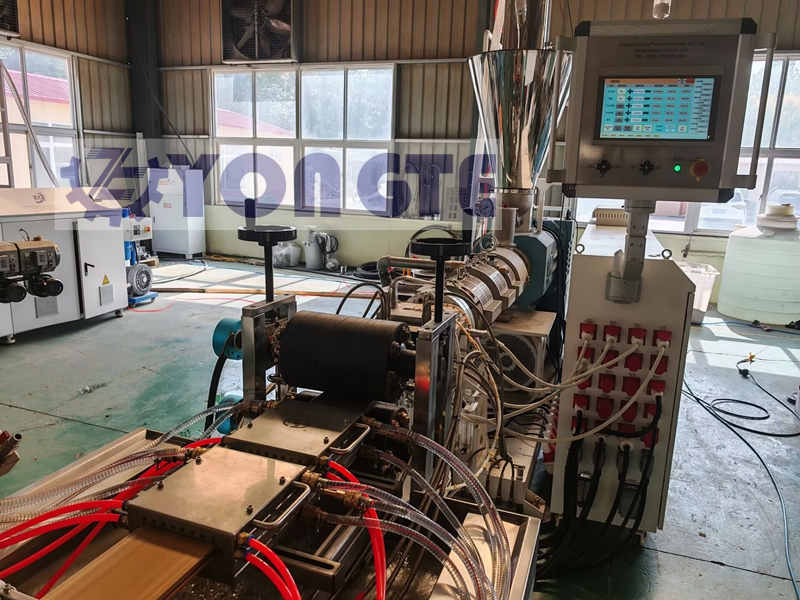Recycled Clothing Wood-Plastic Composite Flooring: From Environmental Burden to Industrial Breakthrough in Green Building Materials
Amidst the global generation of over 92 million tons of waste clothing annually, Qingdao Yongte Plastic Machinery, through continuous technological innovation, has developed a cost-effective and market-promising recycled clothing wood-plastic composite flooring production line, providing a feasible industrial solution to this global environmental challenge.
Statistics show that in Europe, nearly 40% of the approximately 12 million tons of waste textiles generated annually still end up in landfills, while in Southeast Asia, influenced by the fast fashion industry, over 5 million tons of old clothing are directly incinerated each year. Faced with the increasingly severe problem of textile waste, Yongte Plastic Machinery, after three years of technological accumulation and market validation, has successfully developed a wood-plastic composite flooring production line adapted to the characteristics of different raw materials. This production line, through AI visual sorting and multi-stage impurity removal processes, can effectively process waste clothing with different composition ratios, stably controlling the fiber moisture content below 2% and metal residue below 50 ppm. In the material integration stage, an anti-parallel twin-screw extruder and a customized coupling agent are used, combined with a unique "granulation before extrusion" process, which improves the impact resistance of the finished flooring by more than 15% and achieves a flexural strength of 18MPa, fully meeting the requirements for use in commercial applications such as outdoor walkways and factory floors.

From an economic perspective, this technology demonstrates significant market competitiveness. Taking a Qingdao customer as an example, after the production line they introduced was running stably, raw material costs were reduced by approximately 18% compared to traditional wood-plastic composite flooring. Because the product meets green building material standards in multiple countries, it has significant pricing power in project bidding, increasing the selling price by 8%-10%. Combined with the carbon emission reduction benefits and landfill cost savings from processing 320 tons of old clothing annually, the investment payback period for this production line can be controlled within two years. In the Southeast Asian market, a Thai building materials company uses this equipment to convert locally stockpiled fast-fashion old clothing into wood-plastic composite flooring that meets ASEAN green certification, with an annual production capacity of 800,000 square meters. The product has successfully entered the commercial markets of Thailand and Malaysia, with a gross profit margin approximately 22 percentage points higher than traditional building materials.

According to the general manager of Yongte Plastics Machinery, the production line currently boasts an uptime of over 95% and can be flexibly adapted to existing wood-plastic composite production equipment in various countries, significantly reducing retrofitting costs for overseas clients. The equipment is already in operation in 12 domestic companies and has been exported to 8 countries including Thailand, Malaysia, and Turkey. Cooperation projects in Europe are also progressing steadily. With the deepening implementation of the EU's Textile Strategy and Southeast Asia's "Green Infrastructure" policies, the market demand for recycled building materials from recycled clothing will continue to grow. It is projected that by 2025, overseas orders will account for approximately 40% of total business, especially driven by the EU's Circular Economy Action Plan, the market size of recycled building materials from recycled clothing is expected to maintain an average annual growth rate of over 15% in the next five years.

Based on current technological accumulation and market feedback, Yongte Plastics Machinery is further optimizing equipment performance and improving the automation level and energy efficiency of the production line. The company plans to demonstrate the complete production process from recycled clothing to flooring at the Shanghai International Plastics and Rubber Industry Exhibition this December and release a multilingual version of the "Global Application Guide for Recycled Wood-Plastic Composite Flooring from Waste Clothing." At the same time, the company is in talks with environmental protection departments and building materials associations in several countries to establish a more complete industrial chain for the recycling, processing, and application of used clothing. These initiatives will effectively promote the industrial application of this technology globally, open up broader commercial opportunities for the resource utilization of waste textiles, and achieve the dual value of environmental protection and economic benefits.